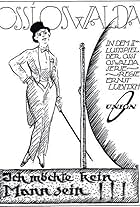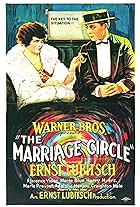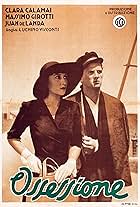A neglected wife disguises herself in order to lure her wastrel husband into a compromising position.A neglected wife disguises herself in order to lure her wastrel husband into a compromising position.A neglected wife disguises herself in order to lure her wastrel husband into a compromising position.
- Director
- Writer
- All cast & crew
- Production, box office & more at IMDbPro
Storyline
Did you know
- TriviaThis short film is featured on the Criterion Collection DVD for Trouble in Paradise (1932).
- ConnectionsFeatured in Cinema Europe: The Other Hollywood: Where It All Began (1995)
Featured review
Fortunately the summer season has almost ended and consequently the aristocratic situation has returned to normal, having in mind the aristocrat's parameters, obviously
, so it's time to resume the exclusive silent season, now that this Herr Graf has returned from one of those luxurious spa retirements in Switzerland full of decrepit and sickly guests and where only horrible water is served. For that reason this Herr Von missed very much his silent films together with a cocktail in his hands, but now, happily the perfect atmosphere and depressed autumn mood is coming.
But meanwhile until the autumn cold and darkness knock at the Schloss door, why not watch a hilarious silent film as a contrast to the usual bad-tempered aristocratic mood of the whole year?... so the screening at the Schloss theatre of "Das Fidele Gefängnis", was an excellent choice.
It is an early Herr Ernst Lubitsch film so characteristic of the German period of that great German director; a mid-length oeuvre, full of irony and sarcasm depicting with a special Teutonic sense of humour the marital troubles of a German bourgeois couple.
Herr Lubitsch intertwined different characters in the story with three parallel situations ( the bourgeois couple, their maid and the admirer of the wife ). The characters will suffer particular adventures, from a typical decadent soirée to a particular Teutonic jail, until finally everything will be more or less settled.
The wicked and masterful irony of the German director that made him famous in the whole world, is demonstrated during the beginning of the film when an amazed wife is searching for her husband (who spent the night outside and alone) through the whole house with the help of her maid but without success; they check every room in vain when maliciously the maid suggests, with a wicked look, her own room; that's pure and unique Lubitsch's style, ja wohl!.
The film has many malicious and delicate misunderstandings so common in Herr Lubitsch early oeuvres; there is a chaotic soirée and a frantic ball. This is pure aristocratic Teutonic decadence, certainly.
"Das Fidele Gefängnis" it is not a great film but has many recognizable Herr Lubitsch elements much to the joy of silent film fans who admire the mastery of the German director ( perfect stars and supporting actors, careful designs, splendid cinematography ); a small picture of the German director, full of "joie de vivre", so necessary in Europe during the First World War, the time when the film was made.
And now, if you'll allow me, I must temporarily take my leave because this German Count must search through the Schloss for a Teutonic rich heiress.
But meanwhile until the autumn cold and darkness knock at the Schloss door, why not watch a hilarious silent film as a contrast to the usual bad-tempered aristocratic mood of the whole year?... so the screening at the Schloss theatre of "Das Fidele Gefängnis", was an excellent choice.
It is an early Herr Ernst Lubitsch film so characteristic of the German period of that great German director; a mid-length oeuvre, full of irony and sarcasm depicting with a special Teutonic sense of humour the marital troubles of a German bourgeois couple.
Herr Lubitsch intertwined different characters in the story with three parallel situations ( the bourgeois couple, their maid and the admirer of the wife ). The characters will suffer particular adventures, from a typical decadent soirée to a particular Teutonic jail, until finally everything will be more or less settled.
The wicked and masterful irony of the German director that made him famous in the whole world, is demonstrated during the beginning of the film when an amazed wife is searching for her husband (who spent the night outside and alone) through the whole house with the help of her maid but without success; they check every room in vain when maliciously the maid suggests, with a wicked look, her own room; that's pure and unique Lubitsch's style, ja wohl!.
The film has many malicious and delicate misunderstandings so common in Herr Lubitsch early oeuvres; there is a chaotic soirée and a frantic ball. This is pure aristocratic Teutonic decadence, certainly.
"Das Fidele Gefängnis" it is not a great film but has many recognizable Herr Lubitsch elements much to the joy of silent film fans who admire the mastery of the German director ( perfect stars and supporting actors, careful designs, splendid cinematography ); a small picture of the German director, full of "joie de vivre", so necessary in Europe during the First World War, the time when the film was made.
And now, if you'll allow me, I must temporarily take my leave because this German Count must search through the Schloss for a Teutonic rich heiress.
- FerdinandVonGalitzien
- Sep 12, 2009
- Permalink
Details
- Release date
- Country of origin
- Languages
- Also known as
- Веселая тюрьма
- Production company
- See more company credits at IMDbPro
- Runtime48 minutes
- Color
- Sound mix
- Aspect ratio
- 1.33 : 1
Contribute to this page
Suggest an edit or add missing content
























